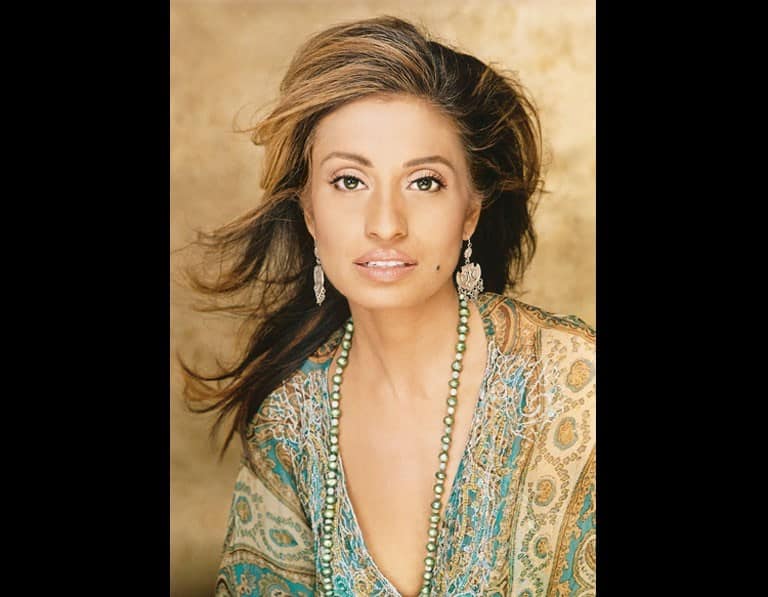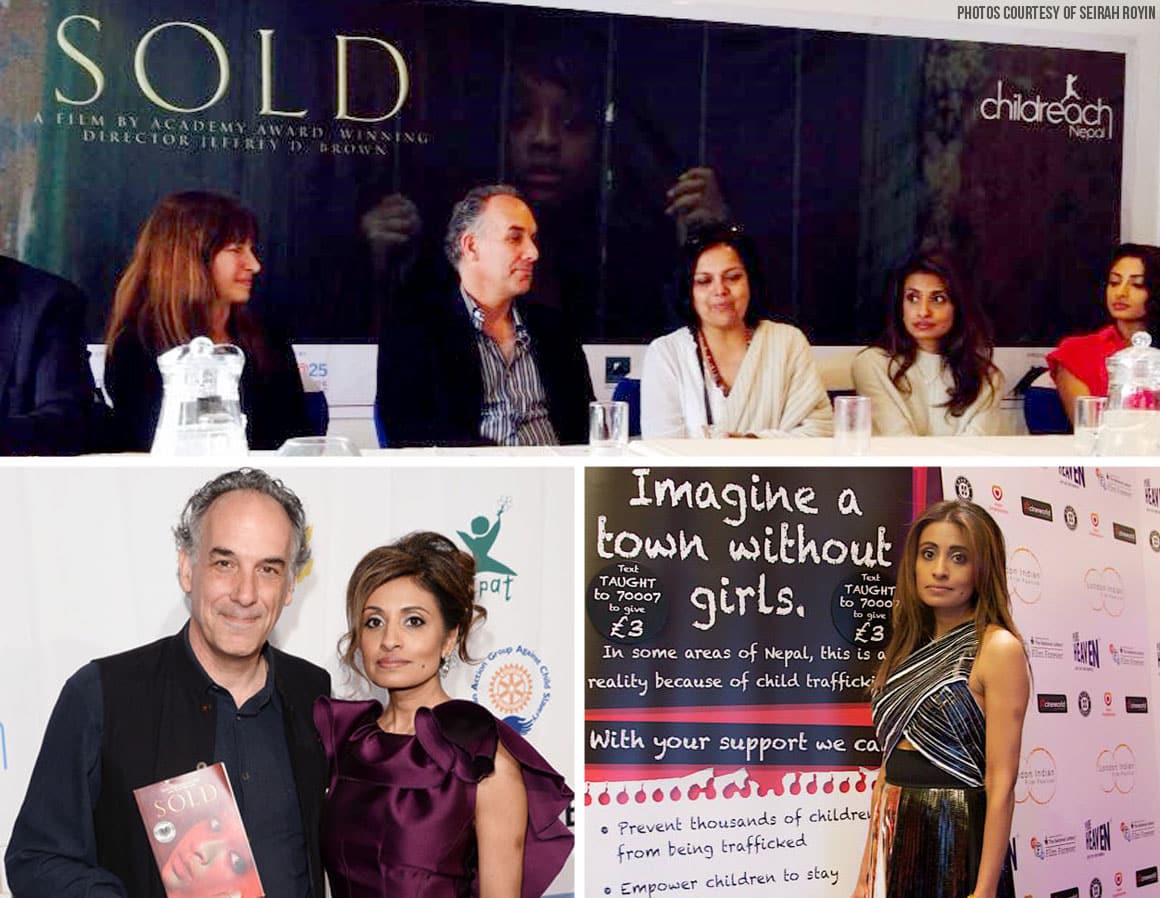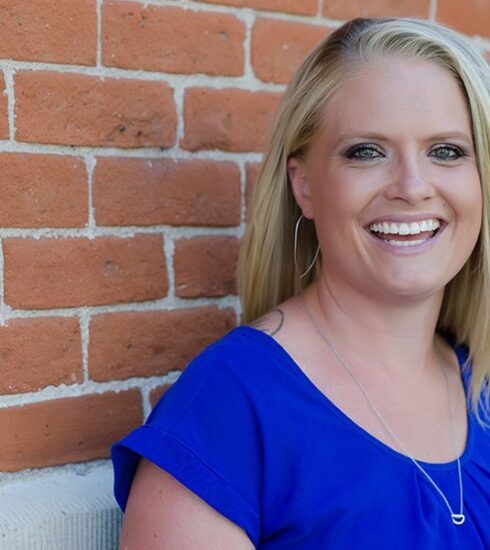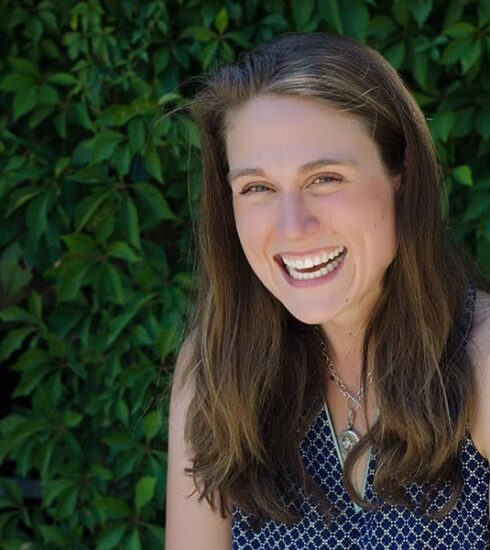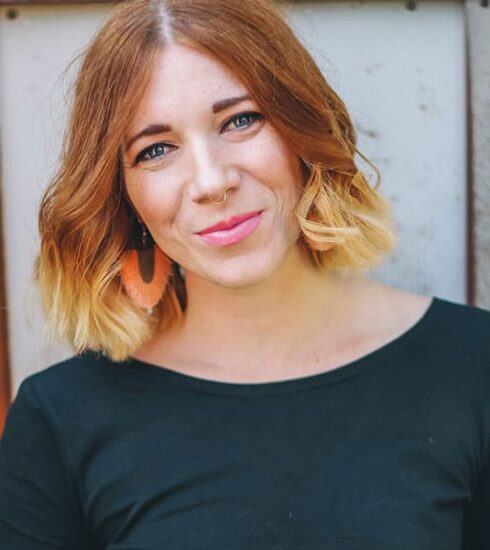Actress Seirah Royin Fights Slavery On & Off Screen
By Melissa Jane Kronfeld & Megan Legband
Seirah Royin is deeply enmeshed in the film world, working as a writer, producer, and SAG actress in Los Angeles. Attending Duke University and graduating with a B.A. in Political Science & Drama and Communications, Seirah focuses on activism for abolition as an ambassador for Childreach International and for the SOLD movie’s #TaughtNotTrafficked campaign.
Seirah says that one of the most fulfilling professional experiences for her has been working with Oscar-winning director, Jeffrey Brown on the feature film, SOLD. His unwavering dedication to fight human trafficking instilled in her a lifelong commitment to do to the same.
Seirah, a diehard Duke basketball fan, worked with the team when she attended the southern University, and her pint-size frame was delightful surprise in the land of giant basketball stars. In the midst of her activism against human trafficking and cheering on her Blue Devils, Seirah is currently working on a World War II feature film.
Check out what happened when we caught up with Seirah, a star of film and philanthropy, to talk about the fight to #EndSlaveryNow!
What is one fact that every person should know about slavery?
It exists on every continent in every country with millions enslaved even today.
How did you first learn about modern slavery & what did you decide to do about it?
I read the award winning book SOLD by Patricia McCormick after my manager told me about Jeffrey Brown’s intention to make the film to fight human trafficking. After reading the book and meeting with Jeffrey, I knew I had to do far more than just give a convincing audition. I felt compelled to go to India and visit the Red Light District so I could learn more, and bring an authentic voice to this role.
Although it was illegal and extremely dangerous to film in Kamathipura (Mumbai’s notorious Red Light District), I hired a camera crew to follow me with hidden cameras capturing what I was experiencing. I walked at night putting myself and my crew at risk, hoping to find something that would give me a glimpse into a dark world I never previously knew existed.
I also spent my days at the Rescue Foundation, talking to young girls who had survived and been rescued from the brothels. It left an impression on me that I will never forget. And I hope I can use my voice to let their stories be heard.
What is the most critical obstacle preventing us from having a slave free world?
I believe a lack of awareness is a huge obstacle. Many people think poverty and lack of education are the most important obstacles but I think too many people are ignorant of the fact that slavery even exists. Once we have greater awareness of the issue, I believe collectively we can fight to end slavery in all forms.
Until I became involved with this project, I never knew there was a Red Light District in India because it was not the India I had ever seen. My experiences in India were always kind and compassionate expressions towards others. This other side of humanity had been hidden until I could see it with new awareness.
What is the most important lesson you have learned while fighting for freedom?
It takes every single one of us to speak up, engage and continue to fight. As hard as we fight, the traffickers fight even harder for their own survival. Educating young children is our best defense to ensuring they will not be trafficked.
And to that end, we must focus on building schools, providing necessary facilities for both boys and girls to learn, and develop holistic methods to heal those that have survived the horrors of being trafficked.
Why do you believe the Millennial generation will be the one that can end slavery?
Never before have young people been able to mobilize so quickly and effectively, allowing their voices to be heard across so many platforms. We can use this interconnectivity to create huge momentum to change the world in a positive way.
What does a slave free world look like to you?
A bright, white light shining out of each person as is our God given birth right to live freely.
What is one thing every reader can start doing right now to help end slavery?
Start with something as simple as talking about it. Many people don’t want to talk about slavery because it is a hard topic. But by engaging in the conversation, we begin to effect change. We begin to create awareness. With awareness comes action.
Profiles In Abolition is an in-depth look at the influencers, innovators & thought leaders in the modern anti-slavery movement. An accompaniment to Millennial Magazine’s ongoing 10-part series exposing modern slavery – a project of the Nexus Global Youth Summit (catch up with Part One, Part Two, Part Three & Part Four) – Profiles In Abolition will examine a diverse & inspiring array of advocates whose critical voice must be heard.
Want to learn more from the world’s leading luminaries in the fight to #EndSlaveryNow? Sign up for the Nexus Anti-Slavery Speaker Series, a weekly conference call with the men and women on the front lines of the modern abolition movement! This call is open to the public and everyone is welcome to listen in! Click here to register for free. Then learn more about modern slavery by following Nexus on Twitter, Instagram & Millennial Magazine!




